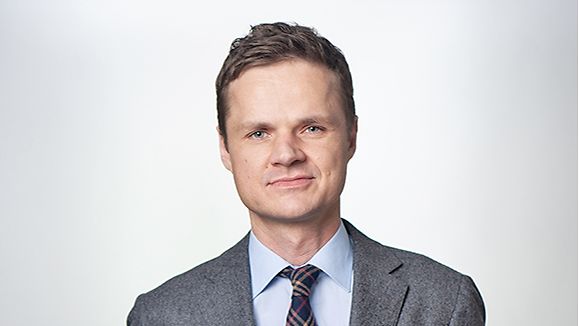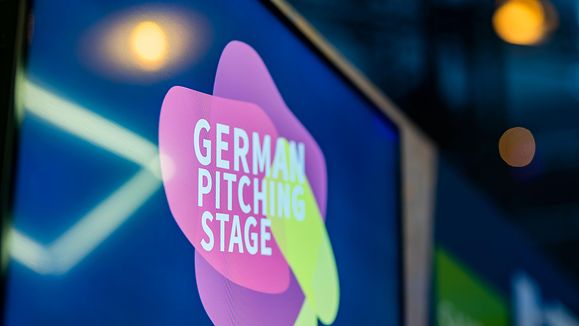Startup
Start-up News | April 2025
Start-ups in Germany are a major innovative force in sectors as diverse as oncology research, immunodeficiency solutions, MRI scanning and electric mobility. We look at some of the most recent developments in the country’s dynamic start-up scene.
Apr 09, 2025
- MotionLab.Berlin to Operate 17,000 sqm Facility at Innovation Campus
- Germany Number Three for Oncology Start-ups in Europe
- Sphaira Medical Develops “Moby” Isolation Pod
- Magdeburg Start-up’s Plans to Build World’s Strongest MRI Magnets
- RuleMapping Group Automates Legal Processes for Digital Administration
- First Node for the Quantum Internet Installed in Aachen
- International Start-ups Driving Electric Mobility Future
MotionLab.Berlin to Operate 17,000 sqm Facility at Innovation Campus
MotionLab.Berlin will operate Europe’s largest “makerspace” at the ringberlin model campus in Berlin. The company, which supports start-ups working at the interface of technology and sustainability on the way to carbon neutrality by 2050, emerged as the winning applicant in a Europe-wide tender process. The proposed 17,000 sqm start-up center will be built in the former production hall on the campus site, with space being made available to innovative small companies, start-ups and individual founders. The ringberlin model campus in the Berlin-Mariendorf district is owned by the Schindler Group, part of the Schindler global elevator and escalator group. The state of Berlin is providing GRW (“Joint Scheme for the Improvement of Regional Economic Structures”) funding of around EUR 36 million to promote the regional economic structure that will directly benefit the construction of the subsidized areas of the start-up center. MotionLab.Berlin members will have access to high-tech workshops for 3D printing, electronics, wood, metal and textile processing as well as CNC milling and laser cutting.
Germany Number Three for Oncology Start-ups in Europe
Germany ranks third in Europe in terms of new oncology start-ups according to a “New frontiers in oncology” study conducted by the European Patent Office. Germany has 28 oncology start-ups behind France and the UK with 246 start-ups and 290 start-ups respectively. The study also finds that Germany leads Europe with almost 5,4000 international patent families – equivalent to 5.1 percent of international share – in the field of cancer during the period 2010 to 2021.
Sphaira Medical Develops “Moby” Isolation Pod
Berlin-based Sphaira Medical has developed a platform of products including autonomous transport vehicles, beds and pilot robots for use in healthcare environments. The start-up has created what it calls the “world’s first mobile protective pod” designed to make face-to-face interaction in medical isolation scenarios possible. Sphaira Medical’s “Moby” pod improves medical isolation during pandemic situations as well as other medical scenarios where immunodeficiency requires strict isolation. The device is currently being tested in the pediatric cancer ward of Berlin’s Charité hospital as part of a joint study to determine the degree to which quality of life can be improved while securing effective protection against infection.
Magdeburg Start-up’s Plans to Build World’s Strongest MRI Magnets
Magdeburg start-up Neoscan wants to build the world’s most powerful electromagnet for use in MRI scanning. The medical technology provider believes that its devices will be able to scan even the finest brain convolutions. Using high-temperature superconductors to drive electromagnets, the company claims that its approach allows stronger electromagnetic fields to be generated will less cooling than is currently the case with current MRI technologies. Although the production of high-temperature superconductors has not enjoyed widespread testing, Neoscan was successful in attracting investors for its portable MRI device for use in pediatric wards. This initial success was consolidated by contracts to build MRI devices with a magnetic flux density of 14 Tesla (the most powerful MRI machines typically have an 11.7 Tesla output), taking MRI performance levels into potentially new areas.
RuleMapping Group Automates Legal Processes for Digital Administration
The Rulemapping Group, founded in Berlin in 2024, focuses on the automation and visualization of legal processes in order to make administrative and legislative structures more efficient and easier to understand. Laws, regulations and administrative instructions are provided as machine-readable and executable rule trees in open-source format - analogous to software updates for legislative amendments. Rulemapping has the potential to significantly advance digital legal administration, leading to advocates heralding the start-up as being the new SAP for the legal profession. Rule mapping can also be used to simulate and forecast legal requirements for technical solutions and business models.
First Node for the Quantum Internet Installed in Aachen
Physicists in Aachen have installed the first nucleus of a regional quantum network - a newly developed quantum node as part of the North Rhine-Westphalia (NRW) funded N-QUIK project. The Fraunhofer Institute for Laser Technology and the Netherlands Organisation for Applied Scientific Research have intensified their collaboration that will see the optimized network node for the quantum internet of future serving as a test field and node for the first “metropolitan scale quantum networks” in the city of Aachen. The project is a milestone on the way to establishing the “Quantum Technology State of NRW.”
International Start-ups Driving Electric Mobility Future
International start-ups are helping drive the electric mobility future in Germany. Dutch company E-magy has developed a silicon for anode materials as an alternative to graphite which, while stable and proven, limits battery energy density levels. Silicon potentially represents a tenfold increase in lithium ions – meaning more power and increased range while maintaining battery size. Taiwan’s ProLogium Technology meanwhile is developing lithium-ceramic solid-state batteries for large scale industrial production. The Taiwanese company’s new technology enables fast-charging capabilities that charge enough energy for 300 kilometers of driving in just five minutes. Mercedes Benz plans to integrate this advanced technology into models such as the electric CLA that is set to be launched this year.

